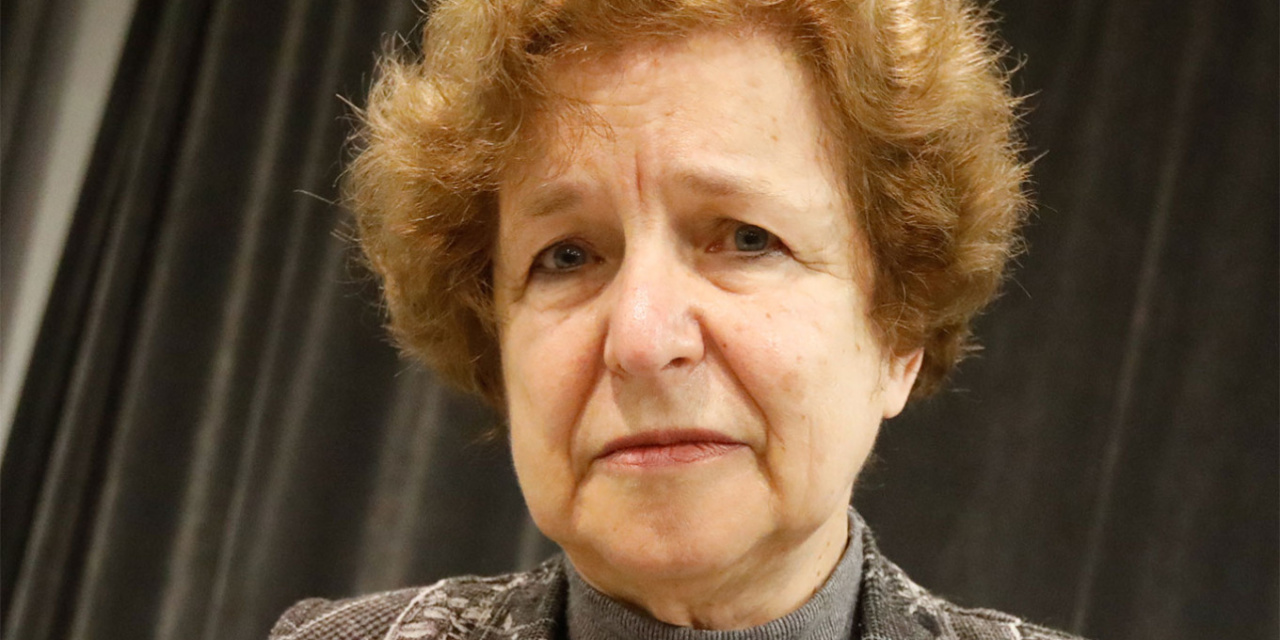Tatjana Ždanoka (Edu Botella/Contacto)
Monday’s Coverage: EU Considers Funding Cut-off of Hungary Over Orbán’s Block on Aid to Kyiv

Map: Institute for the Study of War
UPDATE 1820 GMT:
An Ukrainian opposition MP claims President Volodymyr Zelenskiy asked the commander of armed forces, Valerii Zaluzhnyi to step down on Monday, but the general refused.
Oleksii Goncharenko, an ally of the commander, said he understood that “yesterday the President asked Zaluzhnyi to resign, but he declined to do so”.
Personally I think this is a a bad idea. There are not fundamental issues between them, but Zelenskiy’s office has been concerned that Zaluzhnyi has been making political not military statements.
Rumors circulated on social media on Monday that Zaluzhnyi could be forced out. The Defense Ministry responded, “Dear journalists, we immediately answer everyone: No, this is not true.”
Goncharenko said Zelenskiy could dismiss Zaluzhnyi and replace him, a process that requires the support of Defense Minister Rustem Umerov.
UPDATE 1759 GMT:
Russia is showing no willingness to return the bodies of dozens of Ukrainian POWs whom Moscow claims died in the crash of a Russian military transport plane, says Kyiv.
The Russians declared that 65 POWs perished when the plane was downed by a missile over the Belgorod region last Wednesday. But Ukrainian officials say Moscow has provided no evidence to support the claim.
“It’s a statement from Russia that our prisoners were there, and so far we can analyze only their words. Now there is no readiness to transfer the bodies from the other side,” said Ukraine military intelligence spokesperson Andriy Yusov.
Russia’s State Investigative Committee said last week that body parts were being collected and removed for genetic testing. It hhas released footage from the site showing a single body in a snowy field.
Ukraine’s human rights commissioner Dmytro Lubinets said an unofficial list of Ukrainian POW casualties, circulating in Russian media, included soldiers who had already returned in an earlier exchange.
UPDATE 1747 GMT:
The European Union will approve an outline deal holding in reserve the profits from €200 billion ($216 billion) in Russian central bank assets that have been frozen, according to an EU official.
The tentative agreement, reached late Monday, could be discussed at Thursday’s EU summit.
The official said the bloc “would allow to start collecting the extraordinary revenues generated from the frozen assets…to support the reconstruction of Ukraine.”
Ukraine President Volodymyr Zelenskiy has called for the seizing of $300 billion of Russian assets frozen by the EU, US, Japan, and Canada soon after Vladimir Putin’s February 2022 invasion.
Canada has amending its Special Economic Measures Act to allow the seizure of Russian State and private assets. US Senate and House committees have approved legislation.
But Senior EU officials said last week that the 27-nation bloc is unlikely to confiscate assets because of concerns with the legality of the measure and potential consequences for the euro currency.
Ukraine War, Day 704: Zelenskiy — Russia’s $300 Billion Assets Abroad Must Be Seized
ORIGINAL ENTRY: Tatjana Ždanoka, a member of the European Parliament from Latvia, is a long-time Russian spy, concludes an investigation by four outlets.
Ždanoka, the co-chair of the Latvian political party Latvian Russian Union, has been in Parliament since 2004. In 2022, she voted against a resolution condemning the Russian invasion of Ukraine, prompting the European Free Alliance to suspend the LRU’s membership. Because of legislation passed in Latvia later that year, Ždanoka will be unable to run for re-election in 2024 and will lose her parliamentary immunity.
The journalists — from Latvia’s The Insider and Re:Baltica; Delfi Estonia; and Sweden’s Expressen — find that Ždanoka has been working undercover for Russia’s State security service FSB since at least 2005. They cite leaked e-mails, which they have confirmed as authentic, between Ždanoka and her Russian handlers.
The e-mails detail the arrangement of meetings in Moscow and Brussels, and requests for funding from Russian sources to underwrite Ždanoka’s political activities in the European Parliament and in Latvia.
Ždanoka was in regular contact with Dmitry Gladey, of the FSB’s St. Petersburg office, from October 2005. The correspondence begins with an unpublished draft agenda and press release for an upcoming conference in Estonia where participants would discuss “the experience of Russian politicians’ participation in municipal governments”.
In September 2007, a week after meeting Gladey in Moscow, Ždanoka apologizes in an e-mail for not sending him “promised information” from the European Parliament Strasbourg, while listing tasks she completed in recent months.
Those tasks allegedly include the arrangement of public hearings at the European Parliament over the Estonian Government’s response to protests in Tallinn. Ždanoka launched a radio program in which she warned Russians in Latvia of the problems that could result from sending their children to Latvian-language schools.
In 2010, Ždanoka sent Gladey a draft plan to promote Russia’s Victory Day holiday in Latvia, with a request for $6,000 in European Union funding for items such as St. George ribbons.
Ždanoka reportedly worked with Gladey until 2013, when she was assigned to a new FSB handler, Sergey Beltyukov. She has allegedly been in contact with a third FSB agent, Artem Kureev, helping him obtain a visa to visit the European Parliament just weeks after Russia’s invasion of Crimea in 2014.
The MEP was an “international observer” for Russia’s staged 2014 referendum for the “annexation” of Crimea. She travelled to Syria to meet Bashar al-Assad, propped up by Moscow during the killing of hundreds of thousands of Syrians from March 2011.
Ždanoka refused to answer questions from The Insider “because they are based on information that you supposedly have, which by definition, you should not have”.
She did say that she had met “thousands of people” and cannot remember anyone named Beltyukov. She confirmed knowing Gladey for decades, having met “in the early 1970s at a tourist base in the North Caucasus, where they were learning to ski”; however, she denied knowing that Gladley is a Russian spy.

